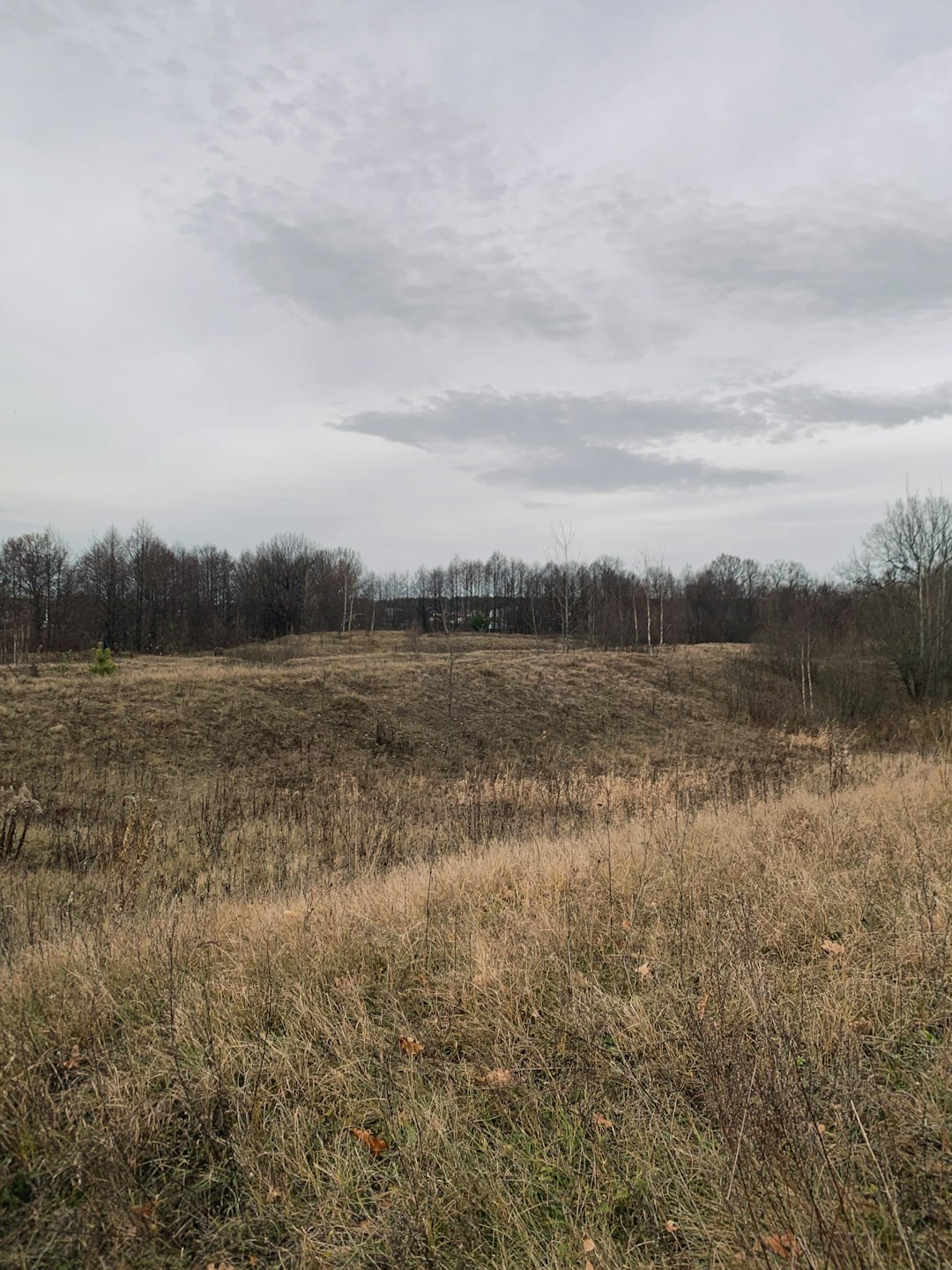
An essential perquisite to selling your land fast is to have a thorough understanding of the current market. The demand for land ebbs and flows due to various economic factors, such as the interest rates, the overall health of the real estate market, and local development trends. It's vital to scrutinize these elements to gauge buyer interest. Research what type of land is selling and how much acreage typically moves quickly. This knowledge will guide you when pricing your land and targeting potential buyers.
Bear in mind that the market for land can be significantly different from other real estate markets. For instance, undeveloped land appeal can swing dramatically based on municipality zoning changes or shifts in local land use policies. Additionally, factors like raw material prices can impact land value, as can environmental considerations and potential for future development. By understanding current trends and predictions, you can time your sale to correspond with periods of high demand.
Finally, staying informed about large-scale land acquisitions and sales within your area can provide insight into buyer profiles and the type of transactions that are successfully closing. Networking with local brokers and attending property auctions can also offer you a clearer picture of the market dynamics at play.
The speed at which you can sell your land is influenced by more than just the current market state. Location, for example, is paramount. A parcel of land in a rapidly growing city will likely sell faster than rural land with less access to amenities and infrastructure. Additionally, the size and shape of your land will play a role; oddly shaped or parcels that are excessively large or small might not align with the average buyer's needs and can remain on the market longer.
Another important factor is how the land can be used. Does it have clear entitlements? Are there any restrictions or easements? Land with clear, flexible use cases is more attractive to buyers and typically sells faster. Similarly, if your land boasts utilities such as electricity, water, or road access, these can be huge selling points—and can greatly speed up the sale process.
Even external factors such as the time of year can influence how quickly your land sells. For instance, planting seasons could be relevant for agricultural land, while development and construction timelines might affect parcels situated within urban zones. Keeping these considerations in mind and timing your sale accordingly could hasten the process.

Selling land to a real estate company can be a complex process, but with the right knowledge and guidance, you can navigate it successfully.. Here is a step-by-step guide on how to sell your land to a real estate company. Firstly, you need to research and find a reputable real estate company that is interested in buying land.
Posted by on 2024-09-30

When it comes to buying land in rural areas, the average cost can vary depending on various factors such as location, size, and amenities.. Generally speaking, purchasing land in rural areas tends to be more affordable compared to urban or suburban areas due to lower demand and fewer development opportunities. In some regions, you may find that the average cost of land per acre can range anywhere from $1,000 to $5,000 or more.
Posted by on 2024-09-30

Do you have a piece of land that's just sitting there, not being used to its full potential?. Maybe it's an empty plot in the city or a patch of rural land that you inherited but don't know what to do with.
Posted by on 2024-09-30

Are you looking to make some quick cash by selling your land? Well, you're in luck! There are a few tips and tricks that can help you sell your land quickly and easily. First and foremost, it's important to price your land competitively. Take a look at what similar properties in the area are selling for and make sure your price is in line with market value.
Posted by on 2024-09-30

Preparation is key when aiming to sell your land swiftly. Start with the basics by ensuring that your land is free of debris and any eyesores that could deter potential buyers. Simple clean-up efforts can considerably enhance the appeal of the property. It's also advisable to commission a professional land survey. This document can confirm property boundaries and identify any potential issues that could hold up a sale.
In addition, having all the paperwork in order, such as title deeds, recent tax bill copies, and any applicable permits, can streamline the selling process. Buyers will appreciate the transparency and confidence that comes with a well-documented property. Furthermore, consider commissioning an environmental study, especially if the land's history suggests potential contamination. This can reassure buyers that the land is safe for development or other uses they may envision.
Any improvements that enhance the utility or accessibility of the land can also be beneficial. For example, clearing trees to show the potential buildable area or developing a dirt road for easier access. Remember, the less work a buyer has to commit to post-purchase, the more compelling your land becomes as a quick-sale opportunity. Think critically about any barriers to development and address them wherever possible before listing.
Correctly pricing your land is one of the most critical steps in achieving a fast sale. If you price it too high, you risk alienating potential buyers and drawing out the sales process. Conversely, setting the price too low might lead to a quick sale but also a significant loss in potential earnings. Conducting a comparative market analysis (CMA) can help you understand the value of similar parcels in your area.
Once you've gathered sufficient data, set a competitive price that reflects the land’s attributes and the current market conditions. Be realistic and flexible about the value of your property. It can be tempting to let personal biases inflate your price, but remember that buyers are looking for fair market value, and overpricing can lead to an extended time on the market.
Additionally, be prepared to reassess and adjust your price if necessary. Monitor the reception and engage with feedback from potential buyers. If you observe that there are no takers after a certain period, it may indicate that your pricing strategy needs tweaking. Keep an open mind and adjust pricing to meet the market needs whilst still accomplishing your financial goals.


Effective marketing is pivotal to selling your land swiftly. Utilize multiple platforms to reach a wide audience. This may include online real estate marketplaces, land-specific listing sites, classified ads, and even social media platforms. Optimize your listings with high-quality photographs, detailed descriptions, and all the necessary information regarding zoning, utilities, and access.
Consider also employing the services of a professional real estate photographer or a drone operator to capture an expansive view of the property; visually compelling images can attract a larger audience. Additionally, developing a dedicated website or landing page for your land with comprehensive details can further increase visibility and interest.
Networking should not be overlooked. Reach out to developers, farmers, local businesses, and residential home-builders, depending on the characteristics of your land. A direct marketing approach to these targeted demographics can sometimes yield quicker results than traditional advertising. Always be prepared to provide additional information and be responsive to inquiries; this will keep potential buyers engaged and help maintain momentum throughout the selling process.
Negotiation is an art, particularly in real estate. When you receive an offer, respond promptly but without seeming desperate. It’s important to demonstrate flexibility and willingness to work with potential buyers while also standing firm on a fair price. Understand the buyer's motivation and tailor your negotiations to their needs; for instance, offer to cover closing costs or provide a fast closing date if they’re looking for a quick transaction.
Be well-armed with information about your land and comparable sales in the area to support your asking price. However, also be prepared to make concessions where it makes sense. If a buyer is on the fence, consider offering incentives such as seller financing, which could be the nudge they need to commit to the purchase.
One key negotiation strategy is to always leave room for compromise. When setting your initial price, account for the possibility of negotiation so that you can comfortably reduce the price if necessary without dipping below your bottom line. Effective negotiation is ultimately about finding that mutually beneficial agreement—a balance between not selling yourself short and not scaring away a potential quick sale.

After successful negotiations, closing the deal efficiently is your next step. Engage a reputable title company or real estate attorney well-versed with land transactions to ensure a smooth closing process. Their expertise will be invaluable in managing the paperwork and making certain all legal requirements are met.
Be proactive in the closing process by double-checking timelines and consistently following up with all parties involved. Time is of the essence, and delays can occur if documents are not submitted promptly or correctly. Clear communication with your buyer and the title company can prevent unnecessary hold-ups and ensure all parties are aligned on the closing date.
Additionally, it's prudent to understand all the costs involved in the closing process, from title insurance to transfer taxes, and who is responsible for each cost. Outlining these details in advance can prevent misunderstandings and facilitate a swifter transition of ownership.

A knowledgeable agent is familiar with local zoning laws, building codes, environmental restrictions, and can assess how these factors impact current use and future development possibilities.
An agent can connect buyers with lenders specializing in land loans, explain different financing options available, and assist with the preparation of financial documents required by lenders.
Check if the land has access to essential utilities such as water, electricity, gas, sewage systems, and internet services. The cost of connecting these services can significantly impact your overall budget.
The key steps include identifying your needs, researching potential properties, securing financing, performing due diligence, making an offer, and closing the deal.
You can secure financing through banks, credit unions, or specialized land loan providers. Pre-approval helps streamline the process.